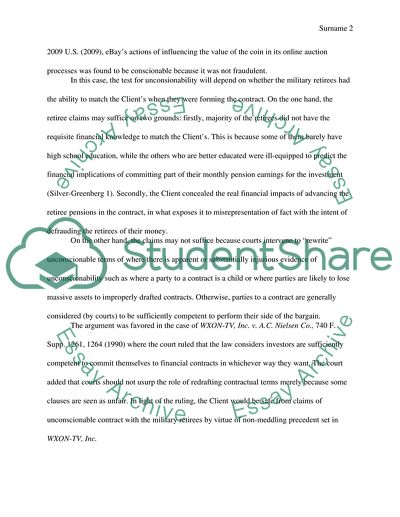Cite this document
(“Advice on Advancing Funds against Military Retirees Pensions Case Study”, n.d.)
Advice on Advancing Funds against Military Retirees Pensions Case Study. Retrieved from https://studentshare.org/law/1864965-legal-assignment-2-pension-advance-agreements
Advice on Advancing Funds against Military Retirees Pensions Case Study. Retrieved from https://studentshare.org/law/1864965-legal-assignment-2-pension-advance-agreements
(Advice on Advancing Funds Against Military Retirees Pensions Case Study)
Advice on Advancing Funds Against Military Retirees Pensions Case Study. https://studentshare.org/law/1864965-legal-assignment-2-pension-advance-agreements.
Advice on Advancing Funds Against Military Retirees Pensions Case Study. https://studentshare.org/law/1864965-legal-assignment-2-pension-advance-agreements.
“Advice on Advancing Funds Against Military Retirees Pensions Case Study”, n.d. https://studentshare.org/law/1864965-legal-assignment-2-pension-advance-agreements.


